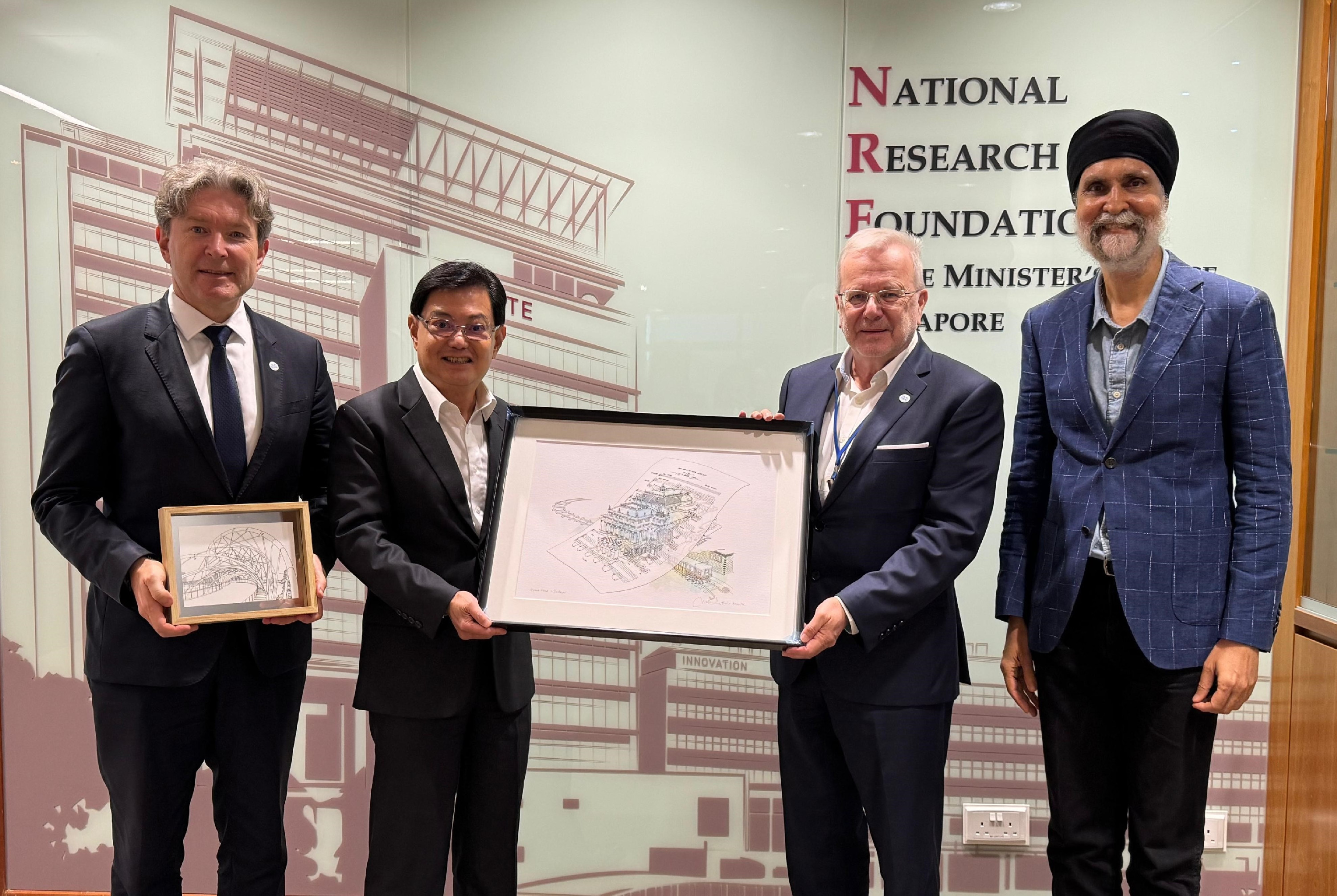AI-based Infant Brain Research and a Post-Tsunami Japanese Biobank — Day Three of the Healthy Living Symposium 2025
This time, the scientific forum jointly organised by HUN-REN and the National University of Singapore saw research into early development and neurocognitive wellbeing, as well as children’s development and education, take centre stage. We summarise the key moments from the third and final day of the Healthy Living Symposium 2025.
Research suggests that infants’ brains develop best when they have a close, loving and reciprocal relationship with their parents. It is important for parents to attend to their infants’ cues and respond consistently when their infants show interest in something. This helps infants learn to regulate their attention and emotions, making communication and learning easier later on.
Researchers in Singapore have developed methods that use sensors and artificial intelligence to accurately quantify parent–infant interactions. These measures can predict how well a baby’s development in language, emotion and cognition will progress, even across cultural contexts. “In future, this could help to identify developmental difficulties very early and provide personalised support for families,” said Victoria Leong, an expert in the field and Professor of Developmental Cognitive Neuroscience at Nanyang Technological University, Singapore, in her lecture.
How does early brain function offer insight into a child’s development, and what opportunities for intervention does it create? These are the questions being explored by Brigitta Tóth, Head of the Sound and Speech Perception Research Group at the Institute of Cognitive Neuroscience and Psychology, HUN-REN Research Centre for Natural Sciences (HUN-REN RCNS). In her lecture, she noted that the circumstances of pregnancy and birth can profoundly shape brain development and influence cognitive, social and motor abilities throughout life. “Newborns’ brain activity can now be measured with high sensitivity and precision using non-invasive electrophysiological methods, providing unprecedented insight into the earliest stages of human neural processing,” she added.
Brigitta Tóth presented research findings that link perinatal factors, such as oxygen deprivation at birth, to later developmental trajectories. She introduced their ongoing BIO-PREPA project, which investigates perinatal asphyxia (PA) using a distinctive approach. “We will subsequently link these early markers to 18-month developmental outcomes, thereby facilitating early diagnosis and timely interventions,” emphasised the researcher at HUN-REN RCNS.
ADHD, a highly topical area, is the focus of research by Nóra Bunford, Deputy Director of the Institute of Cognitive Neuroscience and Psychology at HUN-REN RCNS. She presented the latest findings from her ongoing research.
Kerry Lee, Professor and Head of the Department of Child Development at the Yew Chung College of Early Childhood Education in Hong Kong, presented a study examining the impact of various financial and social support measures on disadvantaged families. In the second part of his lecture, he discussed how reforming teacher education could improve children’s early experiences, and introduced a pedagogical approach that combines progressive education with traditional cultural values. The aim is to preserve a love of learning without compromising long-term developmental outcomes.
Many people are afraid of maths and experience so-called maths anxiety — ‘a state of tension that hampers working with numbers and solving mathematical problems in everyday life and at school.’ An OECD study of more than 150,000 adolescents found that this anxiety is more closely linked to students’ self-perceptions — how confident they are in their ability to succeed, whether they feel in control and how much they value the subject. “Strengthening these subjective self-perceptions may therefore be key to reducing anxiety, which in the long term also supports wellbeing and mental health,” emphasised Dénes Szűcs, Professor of Cognitive Neuroscience and Psychology at the University of Cambridge, in his lecture.
Masayuki Yamamoto, Professor in the Department of Medical Biochemistry at Tohoku University School of Medicine, provided a detailed overview of the biobank they established thirteen years ago. Set up in the aftermath of the Great East Japan Earthquake and tsunami, the Tohoku Medical Megabank aims to advance personalised healthcare. The biobank includes two large cohort studies involving more than 157,000 participants; in addition to baseline assessments, participants are followed up every five years. This enables long-term tracking of participants’ health. “We are convinced that building an integrated biobank through large-scale genomic cohort studies will be crucial to advancing personalised healthcare and biomedical research,” he added.
The event concluded with closing remarks by CEO Roland Jakab and President Balázs Gulyás.
In his address, Balázs Gulyás emphasised that HUN-REN’s mission is to organise the knowledge within Hungary’s research network — together with the inspiring ideas raised here — into a research programme that benefits society. For his part, Roland Jakab highlighted the role of AI in accelerating research, and its potential to become a new ally in medicine.
A summary of Day One is available here. A summary of Day Two is available here.






























































